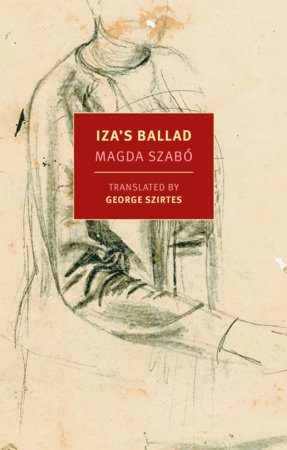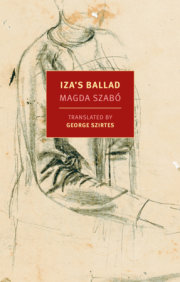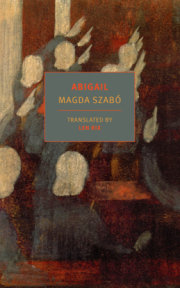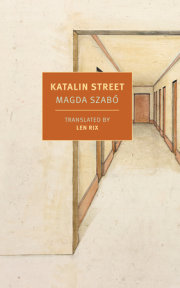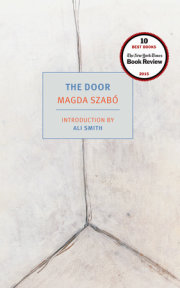"'The Door' has a vitality undimmed by time or translation. Its emotional ferocity, moral urgency and tincture of black magic made it feel new and urgent. 'Iza’s Ballad’ is no less relevant, a trenchant, unadulterated drama of old age and the loss of meaning…George Szirtes’s translation captures the story’s emotional turmoil at no cost to its clarity or directness. Even after years of obscurity, this novel has the breath and pulse of a living thing." —Sam Sacks, The Wall Street Journal
"Some books, like some people, require great patience and attention to fully understand their complexity and beauty. Szabo teaches us lucky readers this very lesson through Iza’s Ballad, one that perfect but songless Iza could never learn.” —Lauren Groff, The New York Times
"New York Review of Books Classics did English-speaking readers an enormous service when it published Hungarian writer Magda Szabo's tense and rending 'The Door' in 2015, and it has us another with this fall's release of her elegiac and elemental novel, 'Iza's Ballad.'...Szabo deftly explores not only the complications of life under communism in the mid-20th century, but also the idiosyncratic and individual failures of empathy that infiltrate human life no matter the time or place. She exposes how, in spite of ourselves, we often espouse and admire the noblest ideals even as we hurt and neglect the people who should be closest to us...Hermann Hesse, one of Szabo's mentors, once said of her, 'With Frau Szabo, you have caught a golden fish. Buy all of her novels, the ones she is writing and the ones she will write.' With 'Iza's Ballad' available in English, readers here in the States have — and should not miss — an additional chance to bask in Szabo's gold." —Kathleen Rooney, The Chicago Tribune
"This rich novel is a startling reminder that it is possible to speak regularly, and with good intentions, to family members without ever coming an inch closer to understanding one another." —Priyanka Kumar, Santa Fe New Mexican
“[A] compelling, affecting and a fascinating parable of mid-20th century progress… a study of the spaces between people, and what those represent.” —Pasha Malla, The Globe and Mail
“[A] heartbreakingly beautiful novel...Szirtes conveys both the sophistication and simplicity of Szabó’s narrative in a superb translation......Just as The Door won an immediate English-language following, Iza’s Ballad is bound to become one of the most loved books of the year.” —The Irish Times
"Magda Szabo's work casts an indirect light upon the dimness that exists between our public and private selves, a place wherein our betrayals—both personal and political—flicker uneasily over the walls...Iza's Ballad should solidify Szabo's standing as a master novelist amongst her English-language readers." —Dustin Ilingworth, LitHub
“A ruthless exploration of the damage we inflict on one another in the name of love.” —The Independent
“Ghosts, angels, and demons hover in this quiet meditation on grief, love, and history." —Kirkus
“The writing has a lovely clarity and a relevance that is timeless.” —Kate Saunders, The Times (London)
“Szabó nails with incisive clarity the painful dynamics between the two [central] characters...A perceptive study of family relationships, bereavement and old age, it is harrowingly beautiful.” —Juanita Coulson, The Lady

